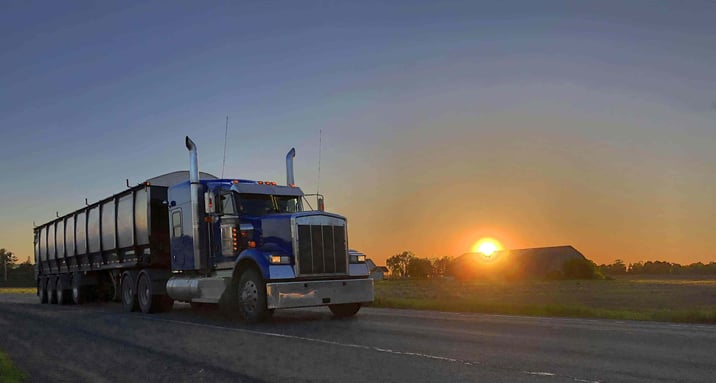Ask The Safety Rep: Changes in Agricultural Commodity Rules

HAS THE DEFINITION OF AN AGRICULTURAL COMMODITY CHANGED?
Yes: On November 24, 2020, the Federal Motor Carrier Safety Administration (FMCSA) published a notice in the Federal Register clarifying the meaning of three terms used in the definition of “agricultural commodity” for the purposes of the agency’s Hours of Service (HOS) regulations. The three terms that were revised include “any agricultural commodity,” “livestock,” and “non-processed food.” The revised meanings of these terms went into effect on December 9, 2020; the revisions ensure that the HOS exemptions are utilized as Congress intended.
The revised definitions are as follows:
- Any agricultural commodity – The update defines any agricultural commodity as horticultural products at risk of perishing or degrading in quality during transport by commercial motor vehicle, including plants, sod, flowers, shrubs, ornamentals, seedlings, live trees, and Christmas trees.
- Livestock – The update defines livestock the same as the term is defined in Section 602 of the Emergency Livestock Feed Assistance Act of 1988 [7 U.S.C. 1471] as insects and all other living animals, including aquatic animals, cultivated, grown, or raised for commercial purposes.
- Non-processed food – The update defines non-processed food as food commodities in a raw or natural state and not subjected to significant post-harvest changes to enhance shelf life, such as canning, jarring, freezing, or drying. The term non-processed food includes fresh fruits and vegetables and cereal and oilseed crops that have been minimally processed by cleaning, cooling, trimming, cutting, chopping, shucking, bagging, or packaging to facilitate transport by commercial motor vehicle.
Because the new rule also expands the definition of “livestock,” it adds to the list of drivers who are exempt from the FMCSA’s requirement for 30-minute breaks. Section 395.1(v) says livestock haulers are exempt from 30-minute breaks as long as they have animals on the vehicle.
CALL TO ACTION
-
Educate all operational personnel and drivers of the definition changes.
-
Review your log auditing procedures to ensure compliance.
-
Update your Hours of Service policy to reflect the changes.
Note: These lists are not intended to be all-inclusive.
The information in this article is provided as a courtesy of Great West Casualty Company and is part of the Value-Driven® Company program. Value-Driven Company was created to help educate and inform insureds so they can make better decisions, build a culture that values safety, and manage risk more effectively. To see what additional resources Great West Casualty Company can provide for its insureds, please contact your safety representative, or click below to find an agent.
© Great West Casualty Company 2020. The material in this publication is the property of Great West Casualty Company unless otherwise noted and may not be reproduced without its written consent by any person other than a current insured of Great West Casualty Company for business purposes. Insured should attribute use as follows: “© Great West Casualty Company 2020. Used with permission by Great West Casualty Company.”
This material is intended to be a broad overview of the subject matter and is provided for informational purposes only. Great West Casualty Company does not provide legal advice to its insureds, nor does it advise insureds on employment-related issues. Therefore, the subject matter is not intended to serve as legal or employment advice for any issue(s) that may arise in the operations of its insureds. Legal advice should always be sought from the insured’s legal counsel. Great West Casualty Company shall have neither liability nor responsibility to any person or entity with respect to any loss, action, or inaction alleged to be caused directly or indirectly as a result of the information contained herein.




